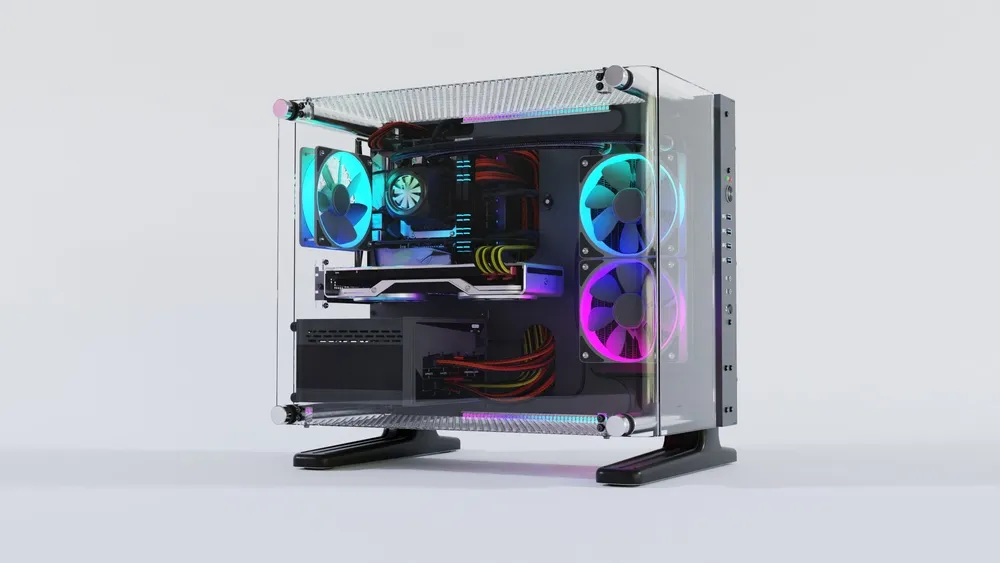Technology moves fast, and many of us are left with aging desktops that no longer serve us. But throwing them in the trash isn’t the solution; it’s harmful to the environment and potentially illegal. Instead, you can recycle old desktop computers safely and responsibly. This guide provides step-by-step instructions, eco-friendly tips, and insights into certified e-waste recycling services, helping you minimize harm to the environment.
Why You Should Recycle Old Desktop Computers
When you recycle computers, you’re doing more than freeing up space; you’re protecting the planet. Here’s why:
- Reduce e-waste: Desktops contain toxic materials like mercury and lead.
- Preserve natural resources: Recycling recovers valuable components like gold, copper, and aluminum.
- Avoid landfill pollution: Proper e-waste disposal reduces soil and water contamination.
- Encourage sustainability: Responsible computer recycling supports the circular economy.
Assessing Your Desktop: Is It Ready for Recycling?
Before tossing that tower into a bin, ask yourself:
- Is it functional? Maybe it’s better suited for a donation.
- Can it be repaired or upgraded? Simple fixes may give it a second life.
- What’s stored on it? Secure your personal data first.
Perform basic hardware diagnostics, then move forward with recycling.
How to Safely Remove Personal Data Before Recycling
Protecting your privacy is crucial. Use the following methods for secure data destruction:
- Back up your files to cloud storage or an external drive.
- Use disk wiping tools like DBAN or Eraser.
- Factory reset your system.
- Physically destroy the hard drive if you’re unsure.
Always complete data wiping before recycling to avoid any data leaks.
Step‑by‑Step: Disassembling Your Desktop PC
Many free computer recycling pickup services expect you to prep your PC:
- Power down and unplug the machine.
- Open the case using a screwdriver.
- Remove internal components: hard drive, RAM, GPU, etc.
- Sort parts into reusable and recyclable bins.
Proper disassembly ensures smoother handling by IT asset disposition services.
Best Reuse Options: Donate, Refurbish, Upcycle
Not all old computers need to be dismantled. Some have life left in them:
- Donate to schools or local charities.
- Refurbish and use it as a secondary workstation.
- Upcycle creatively: turn it into a media center or home server.
You can also trade in old computers with tech retailers and manufacturers.
Certified E‑Waste Recycling Services
To stay compliant and eco-friendly, always choose certified e-waste recycling London providers:
- Look for R2 or e-Stewards certification.
- Many offer free desktop computer recycling pickup.
- Businesses should consider IT asset disposition service London for bulk disposal.
Avoid unofficial drop-off locations that may not handle materials responsibly.
Local Recycling Programs & Regulations
Each city and region has unique recycling rules. Check:
- Local council websites for drop-off schedules.
- State or municipal laws regarding electronics waste.
- Contact electronics recycling near me for accurate info.
Nationwide Recycle Programs
Big names like HP, Dell, and Apple run take-back programs and organize e-waste collection events.
Fees vs. Free Recycling Options
- Some services are free, while others charge a small processing fee.
- Look for free computer recycling pickup promotions during e-waste awareness weeks.
Environmental Impact: E‑Waste Statistics & Trends
According to global studies:
- Over 50 million tonnes of e-waste are generated each year.
- Only 17.4% is officially documented as properly recycled.
This makes computer recycling not just a personal duty but a global necessity.
How Manufacturers are Promoting PC Take‑Back Programs
Top brands support sustainability:
- Dell Reconnect: Recycle any brand PC via Goodwill.
- Apple Trade In: Offers credit for functional systems.
- Lenovo Asset Recovery Services: Targets business IT recycling.
Participating in trade in old computers programs helps reduce landfill stress.
Selling Parts vs. Recycling Entire Unit
Don’t discard value many parts are in demand:
- Sell used computer parts online: RAM, GPUs, SSDs often retain resale value.
- Use platforms like eBay, Craigslist, or local forums.
- Recycle the remaining frame responsibly.
This hybrid strategy optimizes both income and eco-efficiency.
What Happens to Recycled Computer Components
Once recycled:
- Shredding: Machines are broken down into tiny pieces.
- Sorting: Materials like plastic, copper, and metals are separated.
- Reprocessing: Components are refined for reuse.
This process ensures e-waste disposal meets environmental safety standards.
10 Tips to Make PC Recycling Easier
- Backup important files.
- Use data destruction tools.
- Remove hard drives if necessary.
- Detach cables and peripherals.
- Label reusable components.
- Use certified e-waste recycling services.
- Check local drop-off points.
- Look into free recycling pickups.
- Donate or trade-in where possible.
- Educate others about e-waste.
Common Mistakes to Avoid When Recycling Desktops
Avoid these pitfalls:
- Throwing in regular trash: Illegal in many areas.
- Not erasing data: Risk of identity theft.
- Using uncertified recyclers Can lead to environmental damage.
- Overlooking resale value: You could be losing money.
Responsible e-waste disposal requires careful planning.
Conclusion: A Sustainable Approach to PC Recycling
By learning how to recycle old desktop computers properly, you not only free up space but also help safeguard the planet. Whether you’re choosing to donate, sell used computer parts online, or engage with a certified e-waste recycling service in London, every step counts. Make recycling a habit and encourage others to do the same.
FAQs About Recycling Old Desktop Computers
Where can I find certified e-waste recycling London providers?
Look for R2-certified services like Veolia or local council-recommended centers.
Can I trade in old computers that no longer work?
Yes, many programs accept non-working units for parts or recycling.
Is free desktop computer recycling pickup available everywhere?
It varies by location. Check with local recycling centres or tech stores.
How can I securely destroy data before recycling?
Use certified tools or remove and destroy the hard drive manually.
What’s an IT asset disposition service?
It’s a professional solution for businesses to recycle electronics securely and legally.
Can I sell used computer parts online legally?
Yes, as long as they are clean and functional, it’s completely legal.
